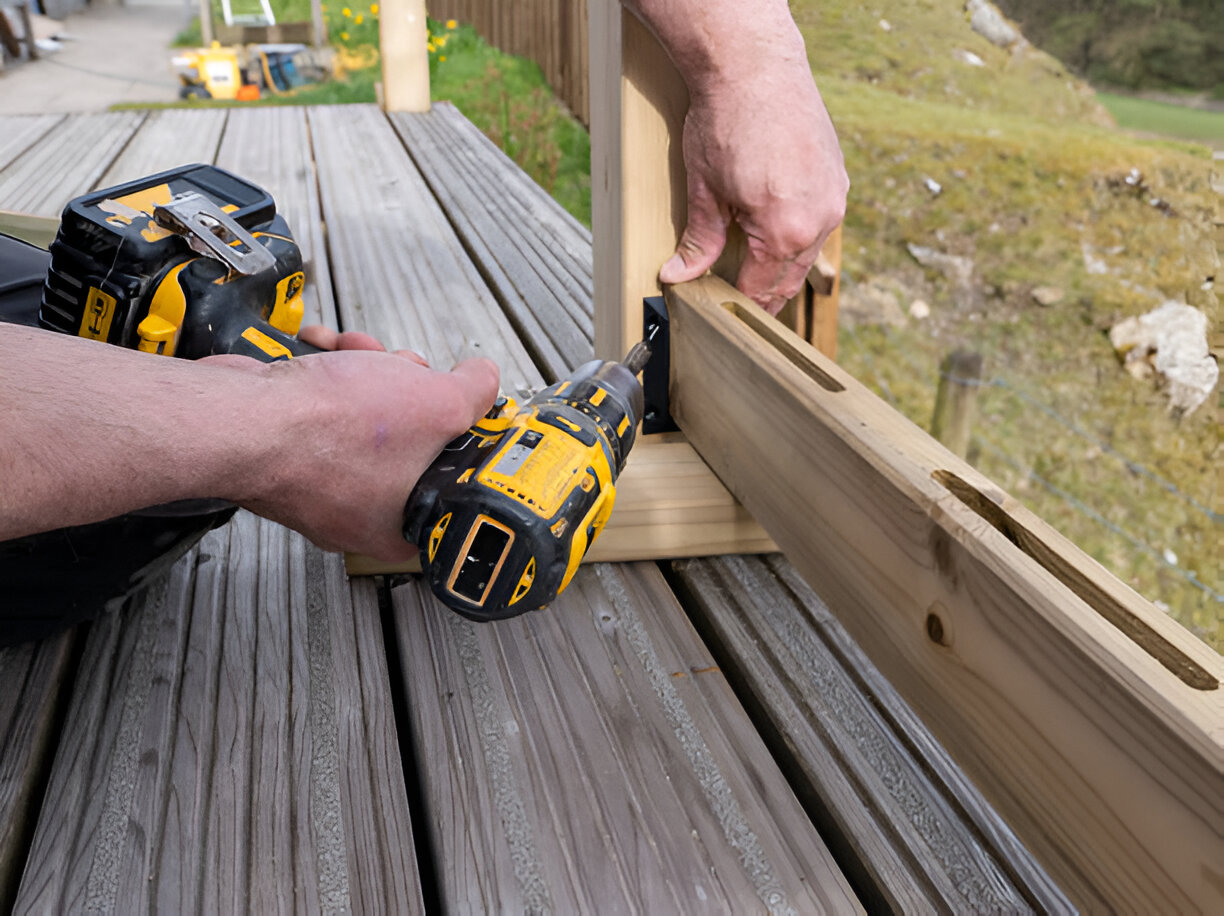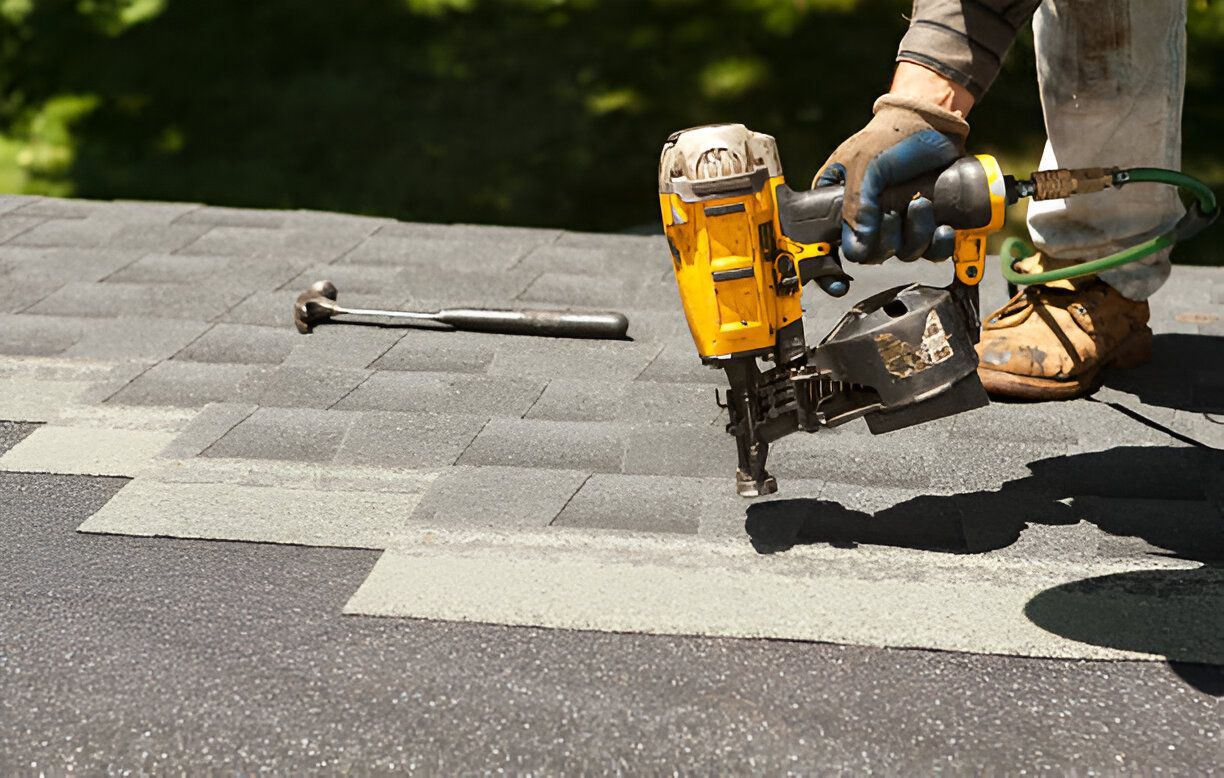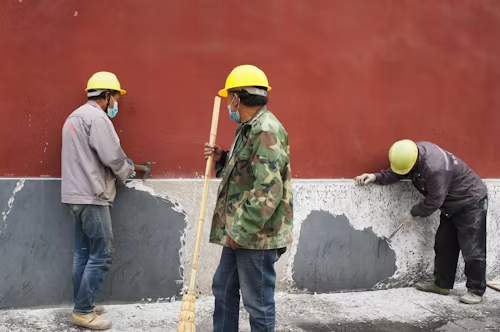How to Maintain Painted Decks & Railings in VT & NH
Decks and railings bring beauty and value to homes throughout Vermont and New Hampshire, but their longevity depends on regular upkeep—especially when painted. From harsh UV rays in summer to relentless snow in winter, our region puts every painted surface to the test. That’s why A1 Property Services offers expert strategies for preserving your painted deck’s appearance, durability, and safety for years to come. Learn more at A1 Property Services.
Why Painted Deck Maintenance Is Crucial in New England
Impact of Vermont & New Hampshire Winters
Winters in Vermont and New Hampshire bring heavy snow loads, icy conditions, and freezing temperatures that can wreak havoc on outdoor surfaces. Painted wood decks and railings are especially vulnerable, as the wood expands and contracts with changing temperatures. This movement can lead to cracking, allowing moisture to seep in and cause long-term damage.
How Moisture, Ice, and UV Exposure Degrade Paint
Painted surfaces in New England face a harsh combination of threats. When moisture penetrates through even the smallest cracks, it can lift paint from the wood beneath. During summer, UV rays accelerate deterioration, leading to peeling, blistering, and fading. Without routine maintenance, these issues can compromise both the appearance and structural integrity of your deck and railings.
Preventing Peeling, Blistering, and Surface Damage
The key to protecting your deck lies in using the right products and applying them with care. At
A1 Property Services, we’ve developed a specialized maintenance process designed to combat the unique weather patterns of Vermont and New Hampshire. Our expert team helps homeowners preserve their painted decks with treatments that lock out moisture, resist UV damage, and extend the life of every surface.
Choosing the Right Paint for Decks and Railings
Acrylic vs. Oil-Based Deck Paints – Pros and Cons
Acrylic deck paints are known for their flexibility, quick drying time, and strong UV resistance—making them an excellent choice for New England’s ever-changing climate. Oil-based paints, on the other hand, penetrate deeper into the wood and offer a hard, durable finish. However, they take longer to dry and require harsh solvents for cleanup. Most professionals, including the experienced team at A1 Property Services, prefer acrylic for its superior performance in Vermont and New Hampshire’s fluctuating temperatures.
Paints Suited for Freeze-Thaw and UV Fluctuations
When choosing paint for your deck, look for elastomeric or flexible formulas designed to move with the wood through Vermont’s freeze-thaw cycles. These coatings resist cracking, peeling, and fading—even after years of exposure to harsh UV rays and snow buildup. The right product can make all the difference in preserving both beauty and protection throughout every season.
Low-VOC Options for Eco-Conscious Homes
Low-VOC (volatile organic compounds) paints have become the standard for health- and eco-conscious homeowners. These paints reduce harmful emissions, improve indoor and outdoor air quality, and comply with strict environmental regulations in Vermont and New Hampshire. Choosing low-VOC deck paint is a smart move for families who want long-term performance without compromising sustainability.
A1’s Preferred Brands and Finishes
At
A1 Property Services, we trust only the most reliable exterior paint brands, such as
Sherwin-Williams and
Benjamin Moore. These industry leaders produce advanced coatings that hold up to extreme weather, resist moisture, and maintain color over time. Whether we’re restoring a deck in Burlington or repainting railings in the Upper Valley, our team applies premium products that ensure long-lasting results.
Proper Prep Before Painting or Repainting
Surface Cleaning, Sanding, and Mold Treatment
Proper surface preparation is the foundation of a successful deck painting project. At A1 Property Services, we begin with power washing to remove dirt, mildew, and embedded grime. Sanding then smooths out rough areas and ensures optimal paint adhesion. Before any coating is applied, we treat the surface with mold inhibitors to prevent future growth—especially important in Vermont and New Hampshire’s damp environments.
Primer Importance in Long-Term Adhesion
Primer isn’t optional—it’s critical. A high-quality exterior primer acts as a bridge between bare wood and the paint layer, helping prevent peeling, blistering, and early wear. It also seals the wood to reduce moisture absorption. Skipping primer is one of the most common causes of premature paint failure, particularly in climates where freeze-thaw cycles are a constant threat. That’s why A1 Pro always prioritizes priming for lasting results.
Tools and Techniques Used by Professionals
Professional tools make a professional finish. At A1 Property Services, our team uses commercial-grade sanders for surface prep, moisture meters to ensure proper conditions before painting, and high-efficiency sprayers or brushes for smooth, even application. This attention to detail ensures that every deck and railing we paint stands up to Vermont and New Hampshire’s toughest weather conditions with style and strength.
Seasonal Inspection & Touch-Up Schedule
Spring and Fall Visual Inspections Checklist
To catch damage early, inspect your deck every spring and fall. Look for:
- Peeling or blistered paint
- Cracks and surface wear
- Rotting or discolored boards
- Loose railings or nails
Identifying Cracks, Chipping, or Fading
Cracks, peeling, or fading in deck paint are early warning signs that the protective barrier has broken down. These issues expose the wood to moisture, UV rays, and temperature swings, accelerating deterioration. Catching these signs early allows for minor repairs instead of major overhauls. Regular inspections by professionals like A1 Property Services help homeowners maintain deck integrity before problems escalate.
Spot Touch-Ups vs. Full Repaints
Not all damage requires a full repaint. If only a few areas are chipped or worn, spot touch-ups with matching paint can restore protection and appearance. However, if 20–30% or more of the deck shows signs of wear, a complete repaint is the smarter choice. The experts at A1 Property Services will assess your deck’s condition and recommend the most cost-effective approach—ensuring a durable and seamless finish.
Preventing Snow & Ice Damage
Avoiding Salt and Chemical Deicers on Paint
While rock salt and traditional chemical deicers can melt ice quickly, they come at a cost—damaging painted surfaces and accelerating wood decay. These harsh compounds eat away at the protective paint layer, leading to peeling and exposing the wood beneath. Instead, use pet-safe or eco-friendly deicing products that are gentle on paint, safe for children and pets, and won’t compromise your deck’s finish.
Best Snow Removal Practices for Painted Decks
Improper snow removal can undo even the best paint job. To preserve your deck’s surface, use a soft plastic shovel and always clear snow
with the direction of the boards to avoid scratching or gouging. Avoid using metal shovels or ice chippers, which can tear into the paint and wood. For homeowners unsure of the safest approach,
A1 Property Services can provide winter maintenance tips or assist with seasonal care.
Using Breathable Deck Covers and Mats
Many homeowners cover their decks in winter—but not all covers are created equal. Plastic tarps can trap moisture, leading to mold, mildew, and paint failure. Instead, opt for breathable deck mats or covers that shield the surface from snow while allowing airflow. These materials protect your paint while minimizing condensation and extending the life of your deck throughout Vermont and New Hampshire’s wet, snowy months.
Ice Dam Prevention on Covered Porches
Ice dams can form when snow melts unevenly on a roof and refreezes near the edges—often dripping onto porch ceilings, steps, and railings. A properly ventilated attic, sealed insulation, and clean gutters are key to preventing these damaging ice buildups. On covered porches, regular snow removal from the roof edge and ceiling inspection can help preserve the painted surfaces below. For long-term protection, trust the team at
A1 Property Services to help assess and weatherproof your home’s most vulnerable spots.
When to Repaint: Timing & Frequency
Average Repaint Cycle in VT & NH Climates
New England’s freeze-thaw cycles, harsh winters, and intense summer sun all take a toll on exterior paint. In Vermont and New Hampshire, painted decks typically need a full repaint every 3 to 5 years. The exact timing depends on factors like paint quality, sun exposure, and how well the surface has been maintained. Regular cleaning and proper snow removal can help extend this cycle—something the pros at A1 Property Services specialize in.
Signs Your Deck Needs a New Coat
It's important to recognize when your deck’s paint is past its prime. Look for these common signs:
- Large areas of peeling or flaking
- Fading or discoloration, especially in sun-exposed zones
- Water no longer beads and soaks directly into the wood
- Deck boards feel rough or splintered to the touch
If you notice two or more of these, it's time to consider repainting before damage sets in.
Color Maintenance and Fading Factors
Not all paint colors age the same. Darker shades absorb more UV rays, making them more prone to fading—especially on sun-exposed decks. UV-resistant topcoats and high-quality exterior paints can help preserve vibrant colors longer. A1 Property Services recommends periodic paint reviews to catch early signs of fading and keep your deck looking its best year after year.

A1’s Painting Process & Warranty
Our 5-Step Deck Painting Method
- Detailed inspection
- Deep cleaning and sanding
- Mold and mildew treatment
- Premium primer and paint application
- Final inspection and customer walkthrough
Every deck painting project is handled by trained professionals who understand local weather patterns and building materials.
Warranty Details for Painted Exterior Surfaces
At A1 Property Services, every exterior paint project is backed by a written warranty for your peace of mind. Depending on the paint system selected, warranties typically range from 3 to 7 years, covering both material performance and workmanship. These guarantees are supported not only by leading paint manufacturers but also by our own commitment to superior installation standards.
How We Ensure Durability and Satisfaction
Long-lasting paint starts with meticulous preparation. Our team uses moisture meters to confirm optimal surface conditions and applies only to properly dried, prepped wood. We follow industry best practices—including sanding, priming, and protective coatings—to ensure lasting adhesion and color retention. Our focus is not just a beautiful finish—it’s results that stand up to Vermont and New Hampshire’s challenging climate.
Our reputation is built on trust and craftsmanship, and we’re proud that so many customers return to A1 Pro for repeat projects and refer friends and neighbors.
Customer Testimonials from the Region
From Burlington to Brattleboro and throughout the Upper Valley, homeowners consistently choose A1 Property Services for our reliable timelines, honest assessments, and impeccable results. Clients praise our team’s professionalism, attention to detail, and ability to bring worn decks and railings back to life.
👉 See why Vermont and New Hampshire trust A1 Pro with their decks and exteriors
DIY vs Professional Deck Painting
Cost Analysis and Time Commitment
DIY deck painting might seem cost-effective at first glance—but many homeowners underestimate the hidden costs. Between tool rentals, surface prep time, paint waste, and do-overs, most DIY efforts end up costing more in the long run. Even worse, a rushed or poorly executed job may require full repainting within a year or two.
Risks of Improper Prep or Low-Grade Paint
Skipping steps like sanding or priming, or using low-quality paint, often results in peeling, bubbling, and mold buildup—especially in Vermont and New Hampshire’s damp and variable climate. A1 Pro’s professional painters eliminate these risks by using high-performance products and proven prep techniques tailored for regional weather conditions.
Why Vermont and NH Homeowners Hire A1
For over two decades, A1 Property Services has helped local homeowners protect their decks and exteriors with skilled craftsmanship, transparent pricing, and warranty-backed results. Our deep understanding of New England’s weather patterns ensures every project is built to last—and our repeat clients prove it.
Ready to extend the life of your deck? Get a quote from A1 Pro today and discover why homeowners across Vermont and New Hampshire trust us with their outdoor spaces.
Conclusion: Keep Your Deck Looking New Year-Round
Maintaining a painted deck in Vermont or New Hampshire isn’t just about appearances—it’s about protection. With proper prep, inspection, and painting techniques, your deck can stay beautiful and functional through every season. Whether you need a touch-up, full repaint, or a complete restoration, trust the team at A1 Pro to deliver expert results that last.
Ready to schedule a consultation or inspection? Contact A1 Pro today for professional service backed by real local experience.
Frequently Asked Questions (FAQ)
Q1: How long does paint typically last on a deck in VT or NH?
With proper application, 3 to 5 years depending on exposure and maintenance
Q2: Can I repaint a deck myself?
Yes, but improper prep or cheap paint often results in premature failure. Hiring a pro like A1 Pro ensures lasting results.
Q3: What type of paint is best for outdoor decks?
Acrylic-based paints are ideal for flexibility and UV resistance in New England climates.
Q4: How do I prevent snow damage on my deck?
Use breathable covers, soft shovels, and avoid chemical deicers.
Q5: When is the best time of year to paint a deck in New Hampshire or Vermont?
Late spring through early fall—when temps are consistently above 50°F and dry conditions prevail


